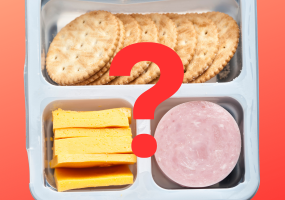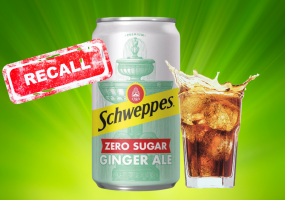It's a settled matter that some of the farm produce sold in grocery stores contain trace amounts of pesticide residues. For this reason, the organic food industry has seen exponential growth in recent years as people are becoming more health conscious in their buying decisions.
But the cost of healthy living in terms of organic food comes at a steep price; a price which others say is not justified at all. For starters, the pesticide residue found in conventionally produced are well within FDA approved limits. In addition, not all vegetables and fruits contain the same level of residue. And even the distinction seems blurred when one takes into consideration a disturbing study by Canadian Food Inspection Agency that found half of the food labeled organic actually contained pesticide residues.
Environmental Working Group recently tested the most common conventionally produced fruits and vegetables and came up with a ranking based on the pesticide residue the group found in them. Based on EWG's rankings, Live Strong author August McLaughlin compiled a list of 16 fruits and vegetable which he says need not be sourced from organic farming. It seems totally unjustifiable to buy that steeply-priced organic produce when the food items found on the list contain barely discernable pesticide residue at all.
1.Onions -
Onions belong to the top 15 food items that were rated by Environmental Working Group (EWG) to have the lowest pesticide residue. Aside from adding flavor to any dish, Onions are known to decrease the risk of obesity, heart disease, diabetes and lower weight according to a Medical News Today article by Megan Ware. In addition, a Live Science article by Jessie Szalay reports that onions contain the powerful anti-cancer quercetin, which is a measure to be twice as much quercetin from tea and three times more than apples.
2.Avocados -
Avocados are one of the healthiest foods around. In fact, it is the only fruit that contains substantial amounts of healthy monounsaturated fatty acids as well around 20 vitamins and minerals according to Medical News Today. Surprisingly, McLaughlin reports that it is one of the cleanest fruits tested by EWG, with only 1 percent of the 3,000 avocados tested showing any detectable pesticide residue.
3.Pineapples -
Pineapples contain the antioxidant vitamin C which is good for immunity, manganese, copper and folate (B9) according to Authority Nutrition. They also contain bromelain, which reduces cancer risk and improves healing, as well as anthocyanins, a powerful antioxidant that reduces the risk of many diseases, including heart disease. Apparently, its thick skin acts as a barrier to pesticides making the fruit clean enough to rank in EWG's top 15.
4.Asparagus
Asparagus is loaded with fiber, folate, chromium and vitamins A, C, E and K. It is also known as anti-inflammatory and antioxidant due to its rutin and glutathione content according to World's Healthiest Foods. And it's safe as well as EWG rates it as one of those vegetable least likely to contain pesticide residue.
5.Grapefruit
The fruit's thick outer skin prevents pesticides from reaching the inner fruit. One can still enjoy the great-tasting fruit known for its cholesterol-lowering properties according to a NutritionAndYou article.
6.Mangoes
Mangoes, known for their delectable taste, are probably one of the best options for people to indulge their sweet cravings. Loaded with vitamins and fiber, the sweet fruit is also surprisingly clean, thanks to its peel dense enough to repel pesticides.
7.KiwiFruit
Kiwifruit is packed with more vitamin C than orange as well as a good source of copper, dietary fiber, vitamin K, E and potassium. Although this health fruit is relatively thin-skinned, it made to the EWG's top 10 lowest pesticide residue list.
8.Mushrooms
Mushrooms contain some of the most potent natural medicinal compounds according to Dr. Mercola. In addition, the delicious mushroom is nutrient-dense and has shown to be effective in weight management as well as improve one's immunity. And it is also one of the safest even if conventionally produced according to EWG's ranking.
9.Papayas
Surprise, surprise! Eighty percent of the papaya tested by EWG is pesticide-free ranking which made the fruit rank in the top 15 cleanest. But McLaughlin warns that for people who do now want GMO, a small portion of papayas grown in U.S. come from the GE seed stock.
10.Sweet Peas
This fiber-rich vegetable is still a healthy choice even if one buys from the conventionally (non-organic) grown harvest. EWG found very little pesticide residue in the samples it tested. The daily recommended fiber intake by the Institute of Medicine is 25 grams for women and 38 grams for men for ages 50 and below. However, a Journal of Nutrition study mentioned that around only 3 percent of Americans meet this requirement. Including sweet peas in one's diet would address this gap because a cup of these healthy veggies alone contains an astounding 14 grams of fiber according to McLaughlin.
11.Cantaloupe
Cantaloupe proves again that being thick-skinned is a bonus, at least in fruits according to McLaughlin. Pesticides simply can't penetrate cantaloupe's tough exterior making it one of the cleanest fruits tested by EWG.
12.Sweet Potatoes
Fiber-rich sweet potato, with its high vitamin A and beta-carotene also measure lower in the glycemic index making it one of those ideal foods for people closely monitoring their blood sugar levels according to Anne Tourney's LiveStrong article. And it's safe as well as its less likely to contain pesticide residues.
13.Eggplant
Eggplant made it to EWG's top 15 cleanest crops. Dr. Mercola mentions that though eggplant does not have one nutrient that is particularly abundant, the vegetable offers a host of vitamins and minerals like vitamins C, K and B6, phosphorus, copper, thiamin, niacin, magnesium and pantothenic acid. What's more, eggplant is a very versatile cooking ingredient as well.
14.Cabbage
Nutrient-rich cabbage is also safe to eat. As a cruciferous vegetable, it may even offer some protection against certain types of cancers according to McLaughlin. One may still continue enjoying that crunchy coleslaw worry-free.
15.Watermelon
The perfect fruit for summers, it would be a wise option to swap those ultra-sweet, high-calorie drinks with this juicy, thirst-quenching naturally sweet fruit. And its thick casing bars any pesticide from entering the flesh so no worries there.
16.Cauliflower
Cauliflower is another healthy fruit that one may continue to buy even if conventionally-grown. EWG ranks this vegetable in its top 15 cleanest.









